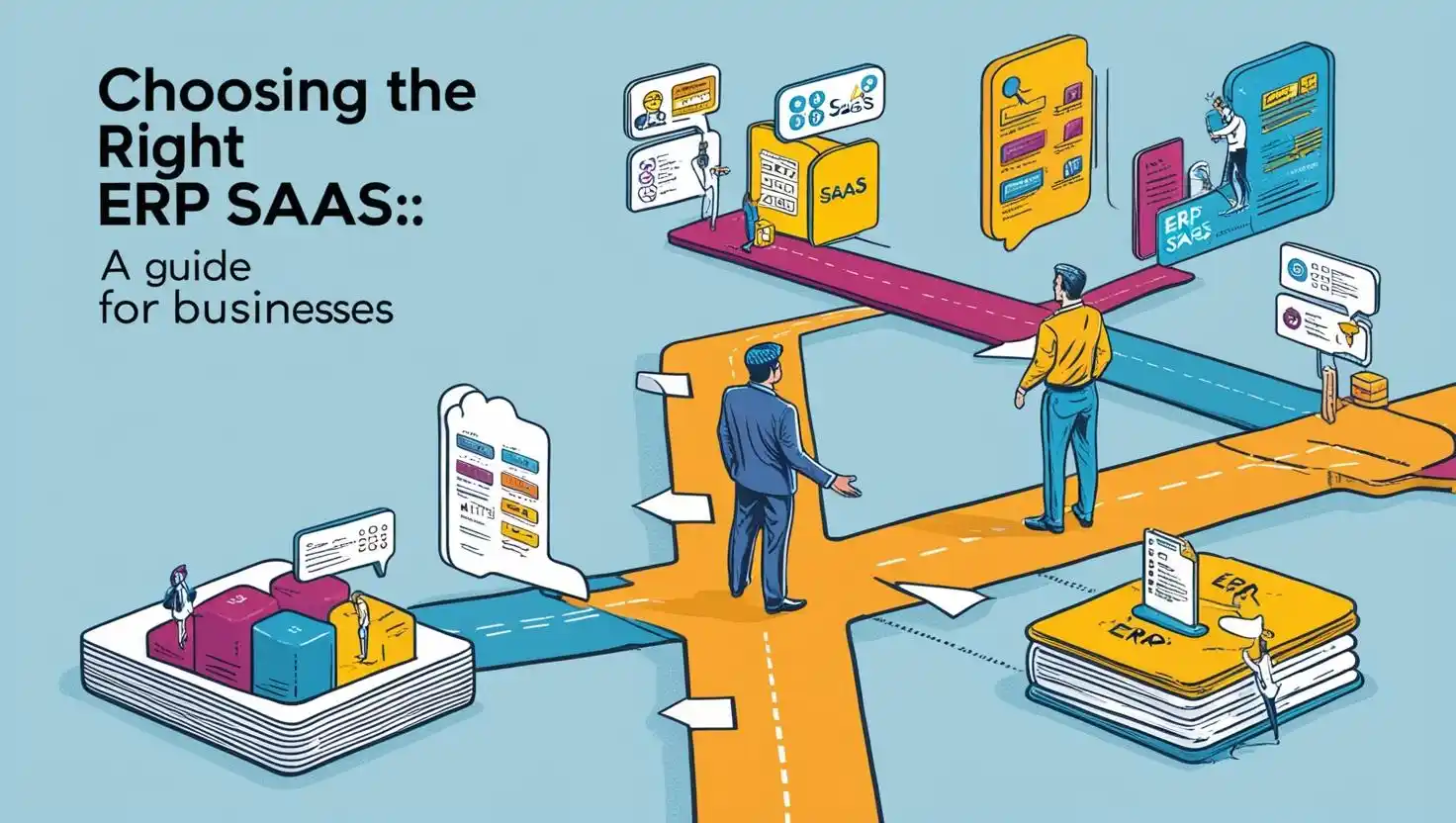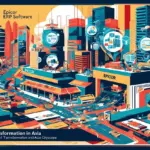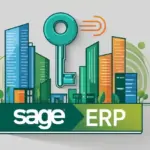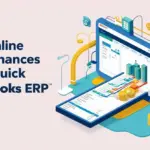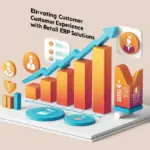Hey there, tech-savvy professionals and business trailblazers! Ever feel like juggling multiple business systems is draining your time, energy, and budget? Say hello to a smarter way of working—SaaS ERP, the cloud-based solution that’s transforming how businesses operate and grow.
Imagine ditching complex IT infrastructure, eliminating software maintenance stress, and having every key business function—finance, HR, inventory, customer management—right at your fingertips. That’s what Software as a Service ERP (SaaS ERP) brings to the table. It’s streamlined, flexible, and designed to work wherever you are.
What is SaaS ERP, and Why Should You Care?
In simple terms, SaaS ERP is a cloud-based enterprise resource planning system. Instead of installing expensive software on local servers, everything is hosted securely online. You get a full suite of business management tools—without worrying about setup, storage, or constant updates.
This kind of ERP system gives you real-time access to financial data, dashboards, and workflows from any internet-connected device. So whether your team is remote, in-office, or hybrid, they can collaborate more efficiently and make faster, data-driven decisions.
Key Advantages of SaaS ERP for Modern Businesses
Lower Costs, Higher Efficiency
Forget traditional licensing fees and IT maintenance bills. SaaS ERP slashes those overheads by running entirely on the cloud. It’s an ideal financial forecasting software that grows with your budget.
Scale As You Grow
Whether you’re a startup or a growing enterprise, SaaS ERP is built to adapt. Need new modules? Add them. Expanding to new markets? No problem. It’s enterprise budget software that fits businesses of every size.
Access Anytime, Anywhere
Run your company from your laptop at home or your phone at the airport. Real-time access means you’re never out of the loop. This is a game-changer for remote teams and mobile decision-makers.
Strong Security
Cloud providers implement strict multi-layered security protocols, including end-to-end encryption and access controls, to protect your sensitive business data.
Built for Collaboration
With everyone connected to the same platform, communication and workflow become more fluid. Your financial statement reporting software integrates perfectly with departments across the organization.
Common Questions About SaaS ERP (And Their Answers)
Q1: Can SaaS ERP be customized for my industry?
Absolutely! Most providers offer flexible modules that align with your specific business processes, whether you’re in manufacturing, retail, or professional services.
Q2: Is SaaS ERP suitable for nonprofits?
Yes, and it’s a fantastic choice. Many providers offer budgeting software for nonprofits with features like grant tracking, donor management, and audit-friendly reporting.
Q3: How safe is my data?
Top-tier platforms use cloud security that meets international compliance standards. Think bank-level encryption combined with regular security audits and data backups.
Q4: What if my business grows or changes?
SaaS ERP is highly adaptable. From a simple setup for small teams to robust software FP&A suites for large enterprises, it scales with you.
Why SaaS ERP is a Business Game-Changer
Traditional ERP systems are like heavy machinery—powerful but difficult to move. SaaS ERP, on the other hand, is like a high-performance sports car—fast, agile, and designed for modern roads.
You’re not just buying software. You’re investing in cloud financial software that helps you do more with less. Automate reports. Track performance metrics. Generate forecasts in minutes. And with top-tier tools like financial close software and best consolidation software, it simplifies even the most complex business functions.
For online businesses, especially in retail, SaaS ERP also offers integrations with the best accounting software for online retail businesses, streamlining everything from sales tracking to inventory forecasting.
How Does SaaS ERP Actually Work?
Remote Access, Total Control
No matter where you are, you can log into your dashboard and manage everything from budgets to approvals. Whether you’re checking inventory on the go or reviewing revenue reports during a layover, SaaS ERP has your back.
Live Data at Your Fingertips
Gone are the days of emailing spreadsheets or waiting for month-end reports. With SaaS ERP, your financial data updates in real time. That means faster decisions, better accuracy, and more proactive planning.
Integrate FP&A Tools and Drive Performance
SaaS ERP platforms often include or integrate seamlessly with FP&A software, giving you advanced budgeting, forecasting, and analytics features. This means you can manage both your short-term cash flow and long-term strategic planning from one platform.
Use it as your centralized business budgeting software and get a crystal-clear view of your company’s financial health.
Customize to Fit Your Workflow
No two businesses are alike. That’s why leading SaaS ERP providers offer modular features that cater to different industries. From project tracking to supply chain management, you can build the system that best supports your goals
Perfect for Teams of Any Size
Whether you’re a small business aiming to streamline your operations or a growing company with complex financial structures, SaaS ERP can handle it all. It’s especially useful for companies that require financial close software to maintain compliance and transparency.
Security You Can Rely On
In today’s digital world, data security is non-negotiable. SaaS ERP platforms take this seriously by using:
- 256-bit SSL encryption
- Multi-factor authentication
- Regular vulnerability testing
- Role-based access controls
You stay compliant and your data stays safe.
Reports, Dashboards & Real-Time Insights
Tired of manual reporting? SaaS ERP offers financial statement reporting software that generates visual, easy-to-read dashboards on demand. Instantly see where your money is going, how your departments are performing, and where you need to pivot.
Easy Integration with Other Tools
Already using CRMs, marketing tools, or e-commerce platforms? No problem. SaaS ERP can integrate with all your favorite systems, creating a truly connected digital ecosystem.
Final Thoughts: Why It’s Time to Switch to SaaS ERP
If you’re still stuck with legacy systems, now’s the time to rethink. SaaS ERP isn’t just a tech upgrade—it’s a strategic advantage. By centralizing your data, automating repetitive tasks, and enabling real-time collaboration, you’re free to focus on what really matters: growth.
Whether you’re looking for budgeting software for nonprofits, cloud financial software, or enterprise budget software, SaaS ERP gives you everything in one intuitive platform. With built-in support for financial forecasting software and powerful FP&A tools, it’s a future-ready solution for any business that wants to stay ahead.
